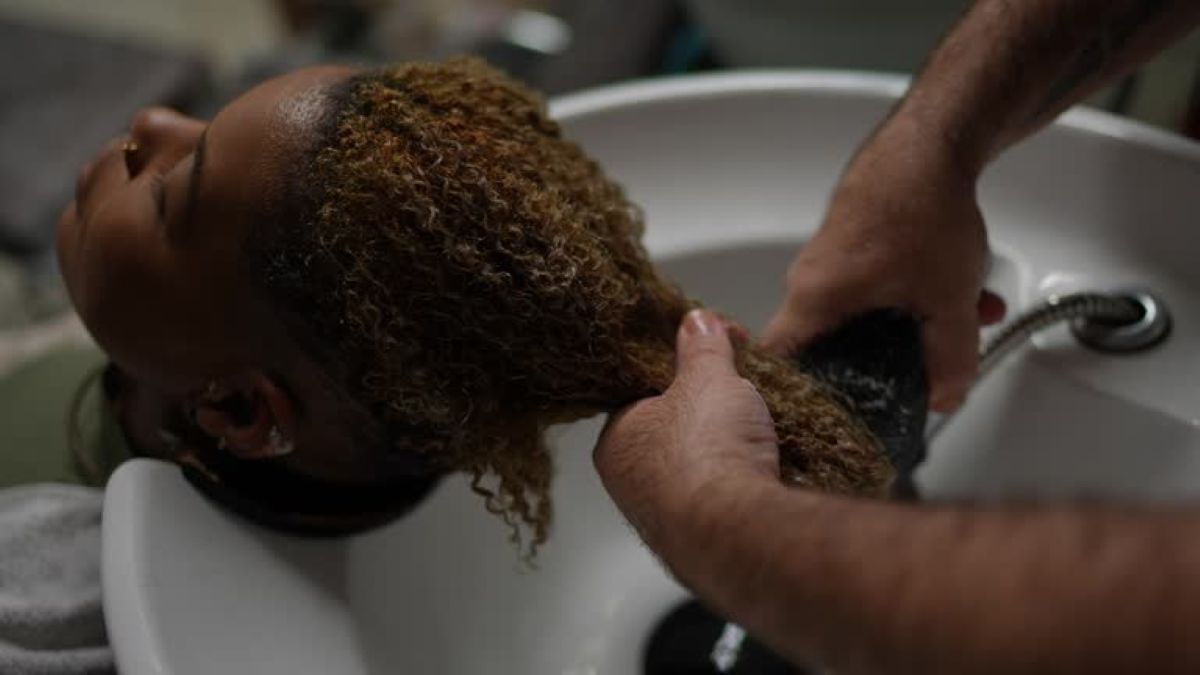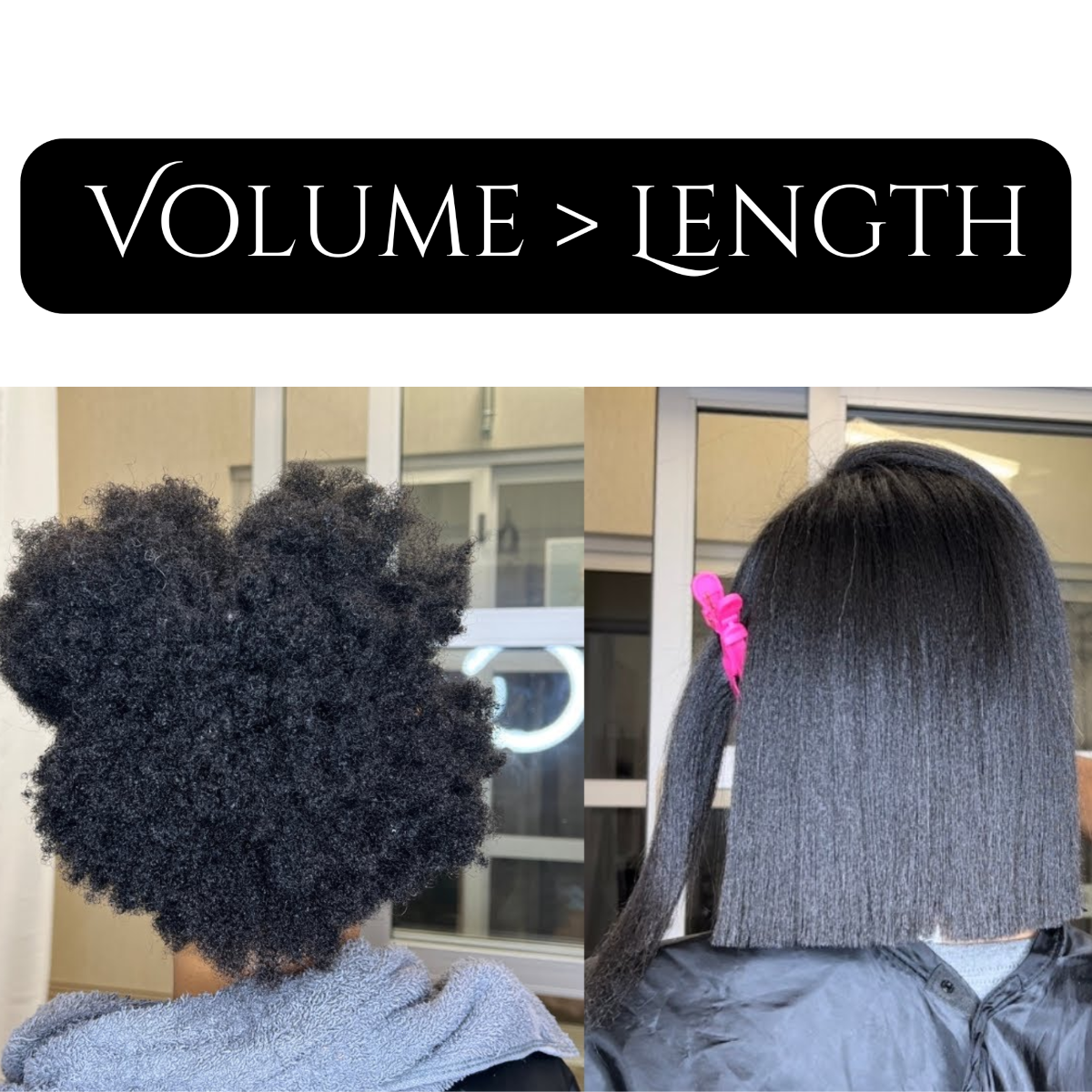For generations, the “squeaky clean” feeling after washing has been the gold standard for a good shampoo. That rich, foamy lather was once seen as a sign of a thorough cleanse, a satisfying scrub that removed all traces of dirt and oil. But for those with African hair textures—from the most defined curls to the tightest coils and kinks—that very sensation is a sign of a problem, not a success. The secret behind that powerful lather is often a harsh chemical known as a sulfate, and understanding why it’s a villain for your hair is the first step towards a healthier, more vibrant mane.
What Are Sulfates?
Sulfates are cleansing agents (surfactants) commonly found in shampoos, body washes, and even household cleaning products. The most common ones include:
-
Sodium Lauryl Sulfate (SLS)
-
Sodium Laureth Sulfate (SLES)
-
Ammonium Lauryl Sulfate (ALS)
These ingredients create the rich, foamy lather many people associate with “clean.” While they’re effective at removing dirt and oil, they can also be too harsh for certain hair types.
Why Sulfates Can Be Problematic for African Hair
African hair — particularly 4C hair — is naturally drier and more fragile than other hair types. Here’s why sulfates are not the best match:
-
Strips Away Natural Oils
African hair relies heavily on natural oils (sebum) for moisture. Sulfates can remove too much oil, leaving strands dry and brittle. -
Increases Breakage
Because curly/coily textures are more delicate, the rough cleansing action of sulfates can weaken strands, leading to breakage. -
Causes Scalp Irritation
Some people find that sulfates cause itching, dryness, or flakiness on the scalp. -
Fades Color & Protective Styling Products
If you use color treatments or rely on moisturizing butters/oils, sulfates can wash them away too quickly. -
Worsens Shrinkage & Frizz
Without adequate oils, curls shrink more, lose definition, and appear frizzier.
Benefits of Sulfate-Free Shampoos
Switching to a sulfate-free shampoo can make a big difference for natural hair health:
-
Gentle Cleansing → Removes dirt and buildup without stripping away all oils.
-
Better Moisture Retention → Helps maintain natural hydration, which is key for 4C hair.
-
Reduced Breakage → Keeps strands stronger, minimizing shedding and breakage.
-
Healthier Scalp → Less irritation, dryness, and itching.
-
Longer-Lasting Styles → Protective styles, oils, and treatments last longer when cleansed gently.
Natural Alternatives to Sulfates
Sulfate-free shampoos rely on gentler surfactants and natural ingredients. Look out for:
-
Cocamidopropyl betaine (derived from coconut oil, much gentler than SLS).
-
Decyl glucoside and coco glucoside (plant-based cleansers).
-
Herbal cleansers like shikakai, reetha, aloe vera, and African black soap.
These cleanse effectively without stripping the hair of vital oils.
How to Transition to Sulfate-Free Shampoos
-
Be Patient with the Lather
Sulfate-free shampoos don’t foam as much as traditional shampoos, but that doesn’t mean they’re not working. -
Pre-Poo or Oil Treatment Before Wash
Adding a pre-wash treatment with oils or conditioners helps protect your hair during cleansing. -
Double Wash if Needed
If you’ve used heavy oils or styling products, wash twice with your sulfate-free shampoo for a thorough cleanse. -
Always Follow with Conditioner
Moisture is key. Seal hydration with a moisturizing conditioner or leave-in.
Sulfate-Free Shampoo Recommendations in Kenya
Here are some excellent options available locally:
-
Cantu Sulfate-Free Cleansing Cream Shampoo – Gentle and formulated for textured hair. Available on Jumia Kenya
-
SheaMoisture Raw Shea Butter Moisture Retention Shampoo – Infused with shea butter, argan oil, and sea kelp. Find on Western Cosmetics Kenya
-
As I Am Curl Clarity Shampoo – Sulfate-free and clarifying without drying out hair. Available at Cysasa Beauty Kenya
Final Thoughts
If you’ve been struggling with dryness, breakage, or scalp irritation, your shampoo might be the hidden culprit. Sulfate-free shampoos are a game-changer for African hair — they help preserve natural oils, reduce breakage, and keep curls healthy and defined.
Your wash day doesn’t have to leave your hair feeling stripped. With the right products, you’ll notice softer, more manageable hair that thrives with moisture.



